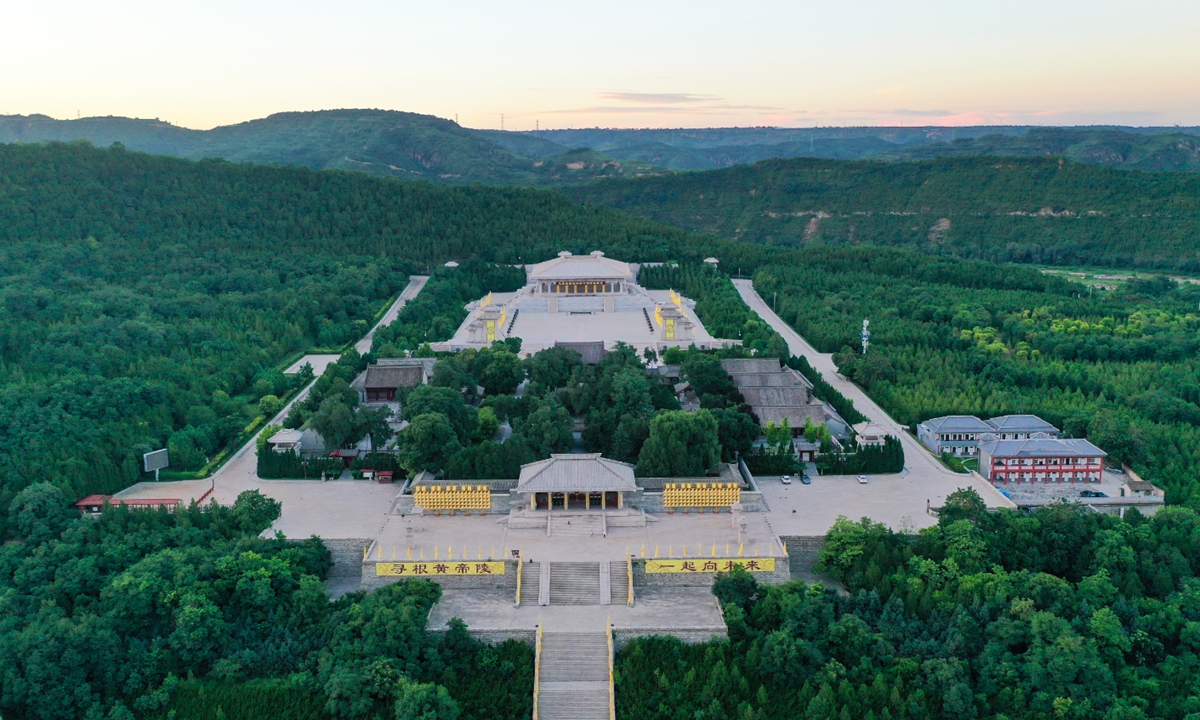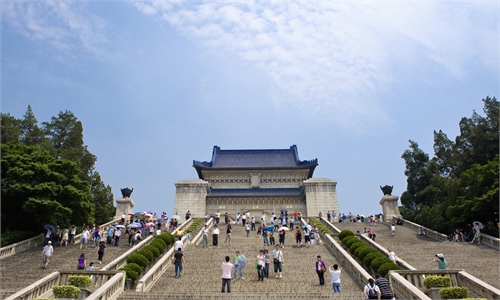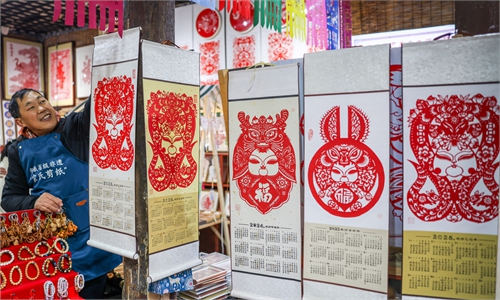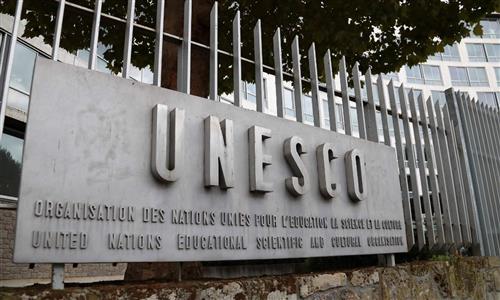
The Mausoleum of Huangdi in Northwest China's Shaanxi Province Photo: VCG
Amid the many public ceremonies being held across the Taiwan Straits honoring Huangdi, or the Yellow Emperor, scheduled for the upcoming Qingming Festival, or Tomb-Sweeping Day, a legal ordinance aimed at protecting the Mausoleum of Huangdi in Northwest China's Shaanxi Province is set to come into effect on April 1. This marks an advancement in the legal conservation of cultural relics related to Huangdi - one of the common ancestors of all Chinese people - and the spiritual symbols of the Chinese nation, according to the local legislation authority.
Advancing the legislative measures for the protection of the mausoleum is a crucial step in standardizing ceremonial worship practices, promoting Huangdi culture, fostering the integration of culture and tourism and strengthening the holistic and systematic protection of Chinese cultural and natural heritage, said Zhao Hong, an official at the Legislative Affairs Commission of the Standing Committee of the People's Congress of Shaanxi Province.
When speaking of the ceremonial activity that will be held at the mausoleum during a press conference on Wednesday, Chen Binhua, a spokesperson for the Taiwan Affairs Office of the State Council, stressed the importance of the mausoleum. He noted that Huangdi is the cultural ancestor of the Chinese nation, and his mausoleum serves as a spiritual symbol of Chinese civilization. The traditions of people from both sides of the Taiwan Straits to honor this ancestor hold significant importance for inheriting and promoting outstanding traditional Chinese culture, as well as for strengthening a sense of national identity, belonging and honor among the compatriots on the island of Taiwan.
The Mausoleum of Huangdi, located on Qiaoshan Mountain in Huangling county of Shaanxi, is regarded as the burial site of the legendary common ancestor of the Chinese nation. It serves as a place for descendants of the Chinese people worldwide to honor their roots and pay tribute to their cultural heritage.
The regulations in the ordinance expand the scope of the protections for the Mausoleum of Huangdi. In addition to safeguarding unearthed and above-ground cultural relics, they also include ancient trees, intangible cultural heritage such as Huangdi sacrificial rituals, as well as the surrounding historical landscape and natural environment within the protected area.
At the same time, the regulations also aim at promoting the innovative use of traditional cultural resources, encouraging the development of a cultural tourism IPs centered around the mausoleum and the creation of themed cultural and creative products, so as to further enhance the social impact of Huangdi culture.
Among the regulations, the management of the annual public worship ceremonies that are held during the Qingming Festival, is also included. This management emphasizes that the ceremony should be centered around the themes of tracing one's roots, and reflect the values of national rejuvenation, unity of the motherland and patriotism. Public worship activities should be conducted with solemnity, dignity, and grandeur, while also being frugal.
More than 350 representatives will attend the mausoleum's 2025 ceremony to pay homage to the emperor, Feng Haobin, a deputy director of the management committee of the mausoleum, introduced at a press conference on Tuesday.
The ceremony consists of nine procedures, including offering flower baskets, reading a memorial address with reverence and planting cypress trees. Within the mausoleum, there stands an ancient cypress tree that is believed to be more than 5,000 years old and thought to be planted by the emperor himself. Planting such trees has since become a tradition during the ceremony.
Zhang Yiwu, a professor of cultural studies at Peking University, told the Global Times that the "special cultural connotation" of the mausoleum has made the recent conservation regulation particularly meaningful.
Unlike other cultural or archaeological heritage sites, the mausoleum is a symbol of the "cultural origin of early Chinese civilization," Zhang said. Due to the symbolic nature of the site, conservation regulations should be expanded to not only include the site's building, but other aspects related to "the site's value, public education function and environment."
"Such an expanded conservation scope helps cultural heritage sites build an all-round conservation plan that can act as a prototype for other sites," Chen Xin, a manager at the Temple of Fuxi, told the Global Times.
Similar to the Mausoleum of Huangdi, the Temple of Fuxi is dedicated to the mythological figure Fuxi, who is widely considered as the primordial ancestor of the Chinese humanities.




